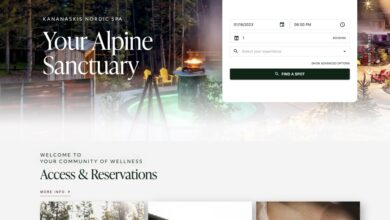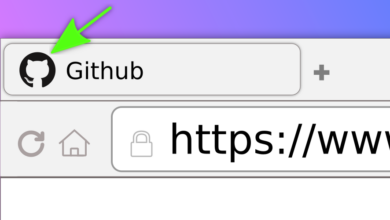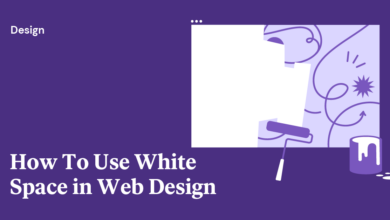
Think Before Selecting Calgary Web Design Agency
Think before selecting Calgary web design agency – it’s more than just picking a name from a list! Finding the right partner for your website is crucial for success. This means understanding the Calgary web design landscape, its competitive players, and the diverse services they offer. From pricing models to design styles, navigating this world requires careful consideration.
Let’s dive into what you need to know before committing to a Calgary web design agency.
Choosing the wrong agency can lead to wasted time, money, and a website that doesn’t achieve your goals. This post breaks down the essential steps to ensure you select a Calgary web design agency that perfectly aligns with your vision, budget, and long-term objectives. We’ll explore everything from evaluating portfolios and technical skills to negotiating contracts and managing the project effectively.
Understanding the Calgary Web Design Landscape
Calgary’s web design industry is a vibrant and competitive market, reflecting the city’s growing technological sector and entrepreneurial spirit. Many agencies cater to diverse clients, from small startups to large corporations, creating a dynamic environment where innovation and specialization are key to success.
The Competitive Environment of Calgary Web Design Agencies
The Calgary web design scene is characterized by a mix of large, established agencies with extensive portfolios and smaller, boutique firms focusing on niche markets. Competition is fierce, with agencies constantly striving to differentiate themselves through specialized services, innovative design approaches, and superior client service. This competitive pressure benefits clients, leading to more competitive pricing and higher quality work.
Choosing a Calgary web design agency is a big decision; you want a partner who understands your vision. But remember, a strong online presence extends beyond your website; you need a solid strategy for promotion too, which is why I recommend checking out this fantastic guide on getting it on with youtube to boost your visibility. Ultimately, the right agency will help you leverage all your marketing avenues for maximum impact.
The market also includes freelance designers offering individual services, adding another layer to the competitive landscape.
Key Differentiators Among Calgary Web Design Firms
Three key differentiators among Calgary web design firms are specialization, client service, and technological expertise. Some agencies specialize in specific industries (e.g., healthcare, real estate), allowing them to develop deep industry knowledge and tailor their services accordingly. Others excel in providing exceptional client service, fostering strong relationships and ensuring seamless project management. Finally, some firms differentiate themselves through their mastery of cutting-edge technologies, such as artificial intelligence or augmented reality integration, providing clients with innovative and forward-thinking solutions.
Pricing Models of Calgary Web Design Agencies
Calgary web design agencies employ various pricing models, including project-based fees, hourly rates, and retainer agreements. Project-based fees are typically fixed prices for a defined scope of work, providing clients with budget certainty. Hourly rates offer flexibility but can lead to unpredictable costs. Retainer agreements involve ongoing monthly payments for a set number of hours or services, ideal for clients needing consistent support.
The choice of pricing model often depends on project complexity, client needs, and the agency’s preferred approach. For example, a small business launching a simple website might opt for a project-based fee, while a large corporation needing ongoing website maintenance might choose a retainer agreement.
Range of Services Offered by Typical Calgary Web Design Agencies
Typical Calgary web design agencies offer a comprehensive suite of services, extending beyond website design and development. These often include branding and logo design, user experience (UX) and user interface (UI) design, content creation and management, search engine optimization (), digital marketing, and website maintenance and support. Some agencies may also offer specialized services like e-commerce development, mobile app design, and social media management.
The breadth of services offered can vary significantly depending on the size and specialization of the agency.
Top Five Calgary Web Design Agencies Based on Client Reviews (Illustrative Example), Think before selecting calgary web design agency
Client reviews are subjective and constantly changing. The following is an illustrative example and should not be considered a definitive ranking. To obtain the most up-to-date information, independent research is recommended using review platforms such as Google Reviews, Clutch, or Yelp.
Note: This section uses hypothetical agency names for illustrative purposes. Actual agency rankings fluctuate based on numerous factors and current client feedback.
An illustrative example of a potential top five list (based on hypothetical positive client feedback and market presence) might include agencies like: Agency A, known for its innovative designs and strong expertise; Agency B, praised for its exceptional client service and project management; Agency C, specializing in e-commerce solutions; Agency D, focusing on user experience design; and Agency E, recognized for its affordable pricing and responsive design capabilities.
Remember that this is a hypothetical example and actual rankings will vary.
Evaluating Agency Capabilities
Choosing the right Calgary web design agency requires a thorough evaluation of their capabilities. Don’t just look at flashy websites; dig deeper to understand their true potential to deliver on your project’s needs. This involves scrutinizing their portfolio, assessing technical skills, and understanding their approach to communication and project management.
Portfolio Assessment
A strong portfolio is the cornerstone of any reputable web design agency. It showcases their past successes, design aesthetic, and technical proficiency. Look for a diverse range of projects, demonstrating adaptability across various industries and client needs. A portfolio filled with similar-looking websites suggests a lack of creativity and limited skillset. The quality of the websites themselves is crucial; look for clean code, responsive design (adapting seamlessly to different screen sizes), and a user-friendly experience.
Websites that are slow to load or difficult to navigate are red flags. Pay attention to the overall design, the user interface (UI), and user experience (UX) aspects of the displayed projects.
Examples of Successful Calgary Website Designs
While I cannot provide specific examples of Calgary agency websites due to the limitations of this format, imagine a portfolio showcasing a sophisticated e-commerce platform for a local artisan, a clean and informative website for a non-profit organization, and a dynamic, interactive website for a tech startup. These diverse examples demonstrate the agency’s versatility and ability to cater to different client needs and project scopes.
The successful designs would incorporate elements such as intuitive navigation, high-quality visuals, and optimized performance.
Technical Expertise Evaluation
Assessing an agency’s technical capabilities goes beyond simply looking at pretty websites. Inquire about their experience with specific technologies relevant to your project, such as content management systems (CMS) like WordPress, Shopify, or custom development using frameworks like React or Angular. Ask about their expertise in search engine optimization (), ensuring they understand how to build websites that rank well in search results.
A robust understanding of web accessibility standards (WCAG) is also crucial, ensuring your website is inclusive to all users.
Client Communication and Project Management
Effective communication and project management are essential for a successful web design project. Look for agencies that provide clear and consistent updates, use project management tools to track progress, and actively solicit feedback from clients. A well-defined project scope, timeline, and budget are also crucial indicators of a professional and organized agency. Agencies with a proven track record of delivering projects on time and within budget demonstrate reliability and competence.
Design Styles in Calgary Web Design Agencies
Calgary’s web design scene reflects a variety of styles, ranging from minimalist and modern designs emphasizing clean lines and simplicity to more complex and visually rich designs incorporating intricate graphics and animations. Some agencies specialize in specific styles, while others offer a more diverse range of options. The best style for your project will depend on your brand identity, target audience, and project goals.
Understanding the prevalent styles and choosing an agency that aligns with your vision is critical for a successful outcome.
Defining Your Web Design Needs
Choosing the right Calgary web design agency hinges on a clear understanding of your own needs. Before you even start contacting agencies, you need a solid grasp of what you want to achieve with your website. Failing to do so can lead to wasted time, money, and ultimately, a website that doesn’t meet your business objectives.
Crucial Factors to Consider Before Agency Selection
Three key factors significantly influence your choice of web design agency: your budget, your project scope, and your target audience. Understanding these elements will help you narrow your search and focus on agencies best suited to your specific requirements. A mismatch in any of these areas can lead to disappointment and project failure.
Checklist for Evaluating Web Design Agencies
Before committing to an agency, use this checklist to ensure they are a good fit:
- Portfolio Review: Does their past work align with your aesthetic preferences and industry standards? Look for websites that showcase similar functionality and design styles to what you envision.
- Client Testimonials: Check online reviews and request references to gauge client satisfaction and the agency’s responsiveness.
- Communication Style: Are they responsive, professional, and easy to understand? Effective communication is vital throughout the project lifecycle.
- Technical Expertise: Do they possess the necessary skills (e.g., , e-commerce integration, specific CMS expertise) for your project? Inquire about their team’s capabilities.
- Project Management Process: Do they have a clear and well-defined project management process? This ensures accountability and timely delivery.
- Pricing and Contract Terms: Understand their pricing structure, payment terms, and contract details thoroughly before signing any agreements.
Comparison of Web Design Project Scopes and Costs
The cost of a web design project varies dramatically based on its scope. Here’s a simplified comparison:
| Project Scope | Features | Estimated Cost (CAD) | Timeline (Weeks) |
|---|---|---|---|
| Basic Website | Simple design, limited pages, basic functionality | $1,500 – $5,000 | 4-6 |
| E-commerce Website | Product catalog, shopping cart, payment gateway integration | $5,000 – $20,000+ | 8-12+ |
| Complex Website | Custom design, advanced functionality, integrations with multiple systems | $20,000+ | 12+ |
| Website Redesign | Revamping an existing website with updated design and functionality | Varies greatly depending on the existing site and desired changes | 6-12+ |
*Note: These are estimates and actual costs may vary depending on the agency, specific requirements, and project complexity.*
Defining Your Website’s Target Audience and Needs
Before approaching any agency, clearly define your target audience. Consider demographics (age, location, income), psychographics (interests, values, lifestyle), and their online behavior. For example, a website targeting young adults might require a more modern, visually engaging design than a website aimed at senior citizens. Understanding your audience’s needs will dictate the website’s content, functionality, and overall design. A business-to-business (B2B) website will have different needs than a business-to-consumer (B2C) website.
Communicating Your Project Vision to a Potential Agency
Effective communication is crucial. Prepare a detailed project brief that includes:
- Project Goals: What do you hope to achieve with your website? (e.g., increase brand awareness, generate leads, drive sales).
- Target Audience: Describe your ideal customer in detail.
- Website Functionality: List all the features you require (e.g., contact form, blog, e-commerce functionality).
- Design Preferences: Share examples of websites you like, highlighting aspects you find appealing.
- Content Strategy: Artikel the type and amount of content you plan to have on your website.
- Budget and Timeline: Be transparent about your budget and desired project timeline.
A well-defined brief ensures everyone is on the same page from the start, minimizing misunderstandings and delays. Consider including mood boards or style guides to further illustrate your vision.
The Selection Process

Source: theedigital.com
Choosing the right Calgary web design agency is crucial for your online success. This decision shouldn’t be rushed; a thorough selection process will ensure a strong partnership and a website that meets your goals. Consider the size of the agency, their communication style, and their understanding of your business needs.
Large vs. Small Web Design Agencies
The choice between a large and small agency depends on your specific needs and budget. Large agencies often boast extensive resources, specialized teams, and a wider range of services. This translates to potentially faster project completion and a broader skillset to handle complex projects. However, they may lack the personalized attention and flexibility of smaller agencies. Smaller agencies, conversely, offer more personalized service and direct communication with the design team.
They’re often more agile and adaptable to changing project requirements, but their resources might be limited compared to larger firms. Consider the scale of your project: a large e-commerce site might benefit from a larger agency’s resources, while a smaller business might find a smaller agency more responsive to their needs.
Initial Consultations with Agencies
Effective initial consultations are vital for assessing compatibility and understanding agency capabilities. Prepare a list of questions focusing on past projects, client testimonials, their approach to design, and their understanding of your industry. Observe their communication style – are they responsive, professional, and attentive to your needs? During the consultation, clearly articulate your website goals, target audience, and budget.
A successful consultation should leave you feeling confident in the agency’s ability to deliver a website that aligns with your vision. For example, you could ask about their experience with specific technologies or their approach to .
Reviewing Contracts and Service Agreements
Thoroughly reviewing contracts and service agreements is paramount. Don’t hesitate to seek legal advice if needed. Pay close attention to the scope of work, payment terms, deadlines, intellectual property rights, and any clauses regarding revisions or project changes. A well-defined contract protects both you and the agency, minimizing misunderstandings and disputes later on. Look for clear definitions of deliverables and a process for addressing potential issues.
For example, the contract should specify the number of revisions included and the cost of additional revisions.
Negotiating Project Timelines and Budgets
Negotiating timelines and budgets requires a balance of assertiveness and collaboration. Present your ideal timeline and budget, supported by a clear understanding of your project’s scope and complexity. Be prepared to compromise, but ensure the agreed-upon timeline and budget are realistic and reflect the quality of work you expect. Open communication is key; don’t hesitate to ask questions about the rationale behind proposed timelines and costs.
Remember, a rushed project often results in compromised quality. For example, if the agency proposes a timeline that seems overly ambitious, ask for a breakdown of the tasks and their estimated durations.
Comparison of Three Potential Agencies
| Agency Name | Strengths | Weaknesses | Estimated Cost Range |
|---|---|---|---|
| Agency A (Large) | Extensive experience, diverse team, wide range of services | Potentially less personalized attention, higher costs | $15,000 – $50,000+ |
| Agency B (Mid-sized) | Strong portfolio, good communication, balanced cost-effectiveness | Limited specialization in certain areas | $8,000 – $25,000 |
| Agency C (Small) | Highly personalized service, quick turnaround times, cost-effective | Limited resources, potential for longer project completion for large projects | $3,000 – $12,000 |
Post-Selection Considerations

Source: webhelpagency.com
Choosing the right Calgary web design agency is just the first step. Successfully launching and maintaining a high-performing website requires careful project management, consistent communication, and ongoing evaluation. This phase is crucial for maximizing your investment and ensuring your online presence achieves its goals.Effective strategies for managing your web design project hinge on clear expectations, regular check-ins, and proactive problem-solving.
A well-defined project scope, including timelines and deliverables, forms the foundation of a successful collaboration. This ensures everyone is on the same page and avoids costly misunderstandings down the line.
Project Management Strategies
Establishing a clear communication plan is vital for a smooth project workflow. This should include regular meetings (weekly or bi-weekly, depending on project complexity), utilizing project management software (like Asana or Trello) to track progress and deadlines, and establishing clear channels for addressing questions or concerns. For example, a weekly status call allows for immediate feedback on design elements, content updates, and any roadblocks encountered.
Using a project management tool provides a centralized location for documentation, updates, and task assignments, ensuring transparency and accountability.
Communication Methods with the Agency
Successful communication relies on a multi-faceted approach. Regular email updates are essential for documenting decisions and progress. However, supplementing emails with video calls allows for more nuanced discussions and quicker resolution of issues. For instance, a quick video call can clarify a design concept far more effectively than a series of emails. Using a project management tool also facilitates communication by providing a central hub for all team members to access information and participate in discussions.
This prevents information silos and ensures everyone is working with the latest version of project information.
Maintaining a Productive Working Relationship
Open and honest communication is paramount. Regular feedback sessions, both positive and constructive, are crucial for maintaining a strong working relationship. Active listening and a willingness to compromise are also key elements of a successful partnership. For example, if a design element doesn’t quite meet expectations, providing specific feedback and suggesting alternatives can lead to a better outcome.
Regular check-ins help to identify and address potential problems before they escalate, fostering a collaborative environment where both the agency and client feel heard and valued.
Measuring Website Success Post-Launch
Measuring the success of your website post-launch requires a data-driven approach. Key performance indicators (KPIs) like website traffic (using Google Analytics), conversion rates (e.g., form submissions, purchases), and user engagement (bounce rate, time on site) provide valuable insights into your website’s performance. For example, a significant increase in website traffic coupled with a high conversion rate indicates a successful campaign.
Conversely, a high bounce rate might suggest issues with website usability or content relevance, requiring further investigation and adjustments.
Ongoing Website Maintenance and Updates
A plan for ongoing website maintenance is essential for long-term success. This includes regular security updates (to prevent vulnerabilities and protect data), content updates (to keep information fresh and relevant), and technical maintenance (to ensure optimal performance). Consider scheduling regular website backups and employing a content management system (CMS) that simplifies updates. For instance, a monthly security scan can identify and address potential vulnerabilities, while regular content updates can improve search engine optimization () and user engagement.
Proactive maintenance prevents larger, more costly issues from arising in the future, ensuring the website remains functional and secure.
Final Wrap-Up
Ultimately, selecting a Calgary web design agency is an investment in your online presence. By taking the time to understand your needs, research agencies thoroughly, and establish clear communication, you can significantly increase your chances of a successful partnership. Remember, the right agency will not only build a beautiful website but also guide you through the process, offering expertise and support every step of the way.
Don’t rush the decision – your website’s success depends on it!
Query Resolution: Think Before Selecting Calgary Web Design Agency
What’s the average cost of a Calgary web design project?
Costs vary wildly depending on project scope, features, and agency size. Expect to pay anywhere from a few thousand to tens of thousands of dollars.
How long does a typical web design project take?
Project timelines range from a few weeks to several months, again depending on complexity.
What should I look for in a contract?
A clear contract should Artikel project scope, payment terms, timelines, revisions, and intellectual property rights.
How can I tell if an agency is reputable?
Check online reviews, look for case studies showcasing successful projects, and verify their experience and credentials.





